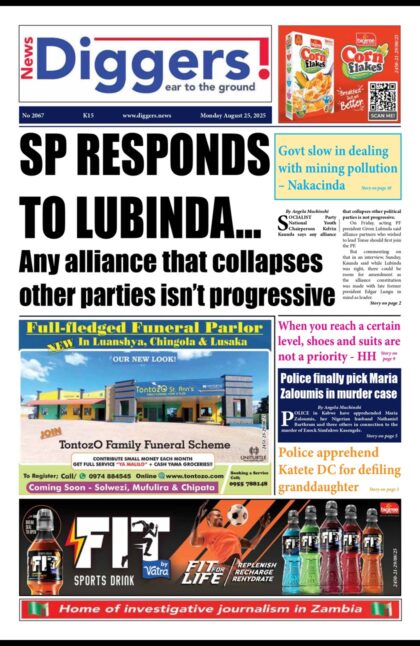Load-shedding has effectively reached record levels. Most areas are going over 48 hours without power. When power does show up, it is for 2-3 hours. And when it goes, in most instances it will be at least 2 days before it is seen again. ZESCO is known for the slogan of “Powering the Nation”. However, I do not think 2 hours every other two days would qualify for powering the nation. ZESCO has clearly failed in its mandate to the Zambian people. And no, I will not accept the excuse of the drought or El Nino. I am not a politician, so I will not accept the argument of politicizing the energy crisis, either. ZESCO has failed. We therefore have to start mentally preparing for a future without the power utility.
The other day I visited my barbershop. My barber has clippers which run on batteries that need to be charged. He had not had power in 2 days and so as he was cutting my hair, the batteries on his machine ran flat. He quickly picked up a second machine, but, alas, it was no more than 5 minutes before it too ran flat. I thought the batteries were replaceable, the regular ones we buy for our remotes and so I asked him whether he could not simply dash to the store and buy batteries. I did not realize the machine is charged from power. Fortunate for me, by the time his clippers were failing most of the work had been done, and I had an important meeting the next day. How could he charge his machine, when power had been gone for over 48 hours. And so his hands were tied. I asked him how he would manage, to which he responded that he would ask to charge his machines from one of the nearby saloons that had a genset.
In my own household, a few days ago, all of my relish went bad. And this is the story of many households across this country. This leads to the question which is the premise of this article, what function is ZESCO playing in our economy? It is the same ZESCO that faced an El Nino in 2015. They did not learn their lesson and now, 9 years later we are in a worse position. As is true for many Zambians, I am now considering alternative power for my household. The question then remains if every Zambian invested in Solar or Generators, preferably Solar, what function would ZESCO play? Let’s take this question a little further, the Mines on the Copperbelt are predominantly supplied by the Copperbelt Energy Corporation, which is run much more efficiently than ZESCO. Those in North-Western Province have their own sources of power. Ndola Energy I believe is picking up some slack when it comes to the Mines. Further, if the price of solar reduced and several banks jumped on the opportunity to fund such purchases, would we still need ZESCO?
ZESCO is a very bloated institution and its Executives are on very high salaries, salaries which are funded by taxpayer money. Already, the entity is not running on a profit. The Tariffs for local consumers are so subsidized, they are barely making anything on the power they sell to us. Where they make their money is on exports and this is why, even with official 17 hours of load-shedding, which in actual fact is 48 hours, ZESCO continues to export power. Now get this, the countries to which we are exporting power, do not experience this severity of load-shedding which we are currently experiencing. But ZESCO will continue to export because that is how the entity survives. That is how those hefty salaries, are paid.
Therefore, what is the solution? Every Zambian must begin to take their power supply into their own hands. Today, I was at Manda Hill and I prospected some solar equipment that was on display, where I found a simple installation costing as little as K9,000. If Government can reduce this cost further, I believe a lot more families can afford solar and potentially we can begin to imagine a world without ZESCO.
As I conclude, ZESCO consumes too much from Government coffers for us to accept this level of inefficiency. My appeal to Government. I know the President and some of his Ministers have invested in Solar energy. Rather my appeal to the President, if he reads this, is that he should see to it that Solar installations are made affordable for the majority of Zambians. If in addition to this most of the country will be in a position to sell power to ZESCO through net metering, citizens will no longer be at the mercy of ZESCO. ZESCO will then be dependent on the citizens. ZESCO will be at our mercy. Let us, the citizens, show ZESCO the meaning of efficiency, foresight and proactiveness. Let us take our development into our own hands, because the Corporation has clearly failed us.
About the author
Michelo Maunga is an Economist and Member of the Economics Association of Zambia
























